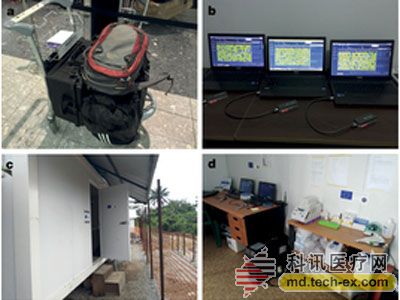Release date: 2016-02-18

An infectious disease research paper published in the British journal Nature this week, describes an Ebola virus genome sequencing monitoring system that can be loaded into a suitcase and transported to the field for use. The results can be obtained within 24 hours. The paper also describes the successful use of this system for real-time monitoring of outbreaks in the recent Ebola outbreak in Guinea, West Africa.
In monitoring the epidemic, the information obtained by sequencing the viral genome helps to understand what kind of variation occurs in the process of large-scale transmission of the virus, which is very important for judging the development trend of the epidemic. However, due to the rapid spread of the virus, how to complete the relevant analysis process faster and more efficiently becomes the key.
The genomic monitoring system developed by Nicholas Roman and his research team at the University of Birmingham in the United Kingdom uses a DNA sequencing device weighing less than 100 grams, which can be transported by standard air baggage or plugged into the USB port of a laptop. The team used the system to sequence and analyze 142 Ebola samples collected from March to October 2015. The researchers found that they could get the results within 24 hours, and the sequencing process took less than an hour.
During the ravages of Ebola last year, the system was first deployed in an epidemic area in Guinea, a West African country. After collecting samples from Ebola patients, the researchers used the system to sequence viral genomes on-site, eliminating the need to ship these samples back to the lab.
The research team believes that this system shows that real-time genome monitoring is feasible in the absence of resources, and the facility can be quickly established to monitor the epidemic.
One of the authors of the report, Birmingham University scholar Nick Lohman, said that the information reflected by genome sequencing was very important to researchers during the outbreak. In the past, this tedious work could only be done in a laboratory equipped with large equipment. Portable sequencing devices are expected to change this situation.
Source: Technology Daily
Ningbo Staneex Imp. & Exp. Co., Ltd. , https://www.staneex.com